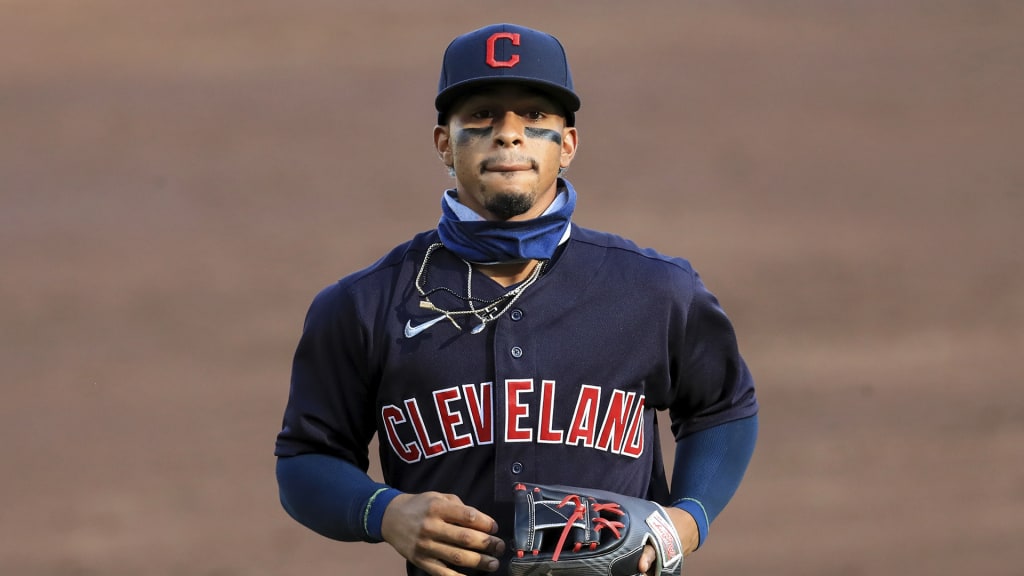
Some of the most encouraging experiences of Francisco Lindor's baseball life occurred in the weeks during and after the Cleveland Indians began Summer Camp this July.
With the United States forced to confront issues of racial injustice amid a flurry of protests in the wake of George Floyd’s death -- amidst a number of killings of Black men and women by the police, or at the hands of other racist attacks -- Lindor and his teammates engaged in conversations that were difficult and at times awkward, but long overdue.
“Having countless meetings and seeing the response of my teammates makes me proud,” Lindor said of the discussions. “Not being a one-day thing, it was every single day for weeks. It was huge. I was very proud.”
Lindor offered those thoughts on Friday while taking part in a panel discussion called Colorism en Beisbol that was sponsored by SOMOS/MLB and moderated by Jennifer Mercedes of La Vida Baseball as part of Hispanic Heritage Month.
Among the topics were racial prejudice Afro-Latino MLB players have faced on and off the field, defining the terms “colorism” and “Afro-Latino” and issues of racial and ethnic identity within the Latino community.
First, the terms.
Puerto Rican-born Lindor identifies as “Afro-Latino” because his native country is, like the United States, a melting pot of races and cultures.
“We are the Baskin-Robbins of all cultures,” broadcaster and activist Roberto Clemente Jr. said of Puerto Rico. “That’s something we’re very proud of. It’s part of being able to educate a lot of people that do not understand our culture, to open their eyes to what we’re all about.
“We have to start the education process as to who we are as human beings. It’s important to change that dynamic and way of living. That will change everything in the world.”
These issues aren’t new. His father, Hall of Famer Roberto Clemente, had challenged his Pirates teammates in the ‘50s about eating in a restaurant that would not serve him.
“If any one of you eat in there, you have to deal with me,” Roberto Jr. quoted his father as saying. “We’re not third-class citizens.”
Another time, one of his early baseball cards identified him as “Bob Clemente.”
“He wasn’t happy,” Roberto Jr. said, “and the company that did that heard about it. He was proud of his heritage and proud to be Roberto Clemente.”
Both Lindor and Clemente said one of their wishes would be for every American-born baseball player to understand the culture in which Latino players are brought up.
Some MLB teams, sensitive to these issues, have sent top Draft picks to the Dominican Republic and Puerto Rico to help them understand where their futures teammates came from.
“Hey, brother, it’s okay to learn a couple of Spanish words,” Lindor said. “A teammate may not be able to say his elbow hurts or order food in a restaurant. You can be there for your teammates.
“It’s tough in the Minor Leagues. You may have kids, 17 or 18, who don’t know anything in English. When you have coaches saying hurtful things, there’s where communication and awareness are important.”
Author Adrian Burgos Jr., a history professor at the University of Illinois, praised veteran Yankees catcher Erik Kratz for his work in helping 21-year-old rookie pitcher Deivi García adjust to his new life this season.
“He’s gotten a lot of love lately for understanding what Deivi García is going through,” Burgos said. “It takes that kind of education. It’s one generation teaching the next to build a better foundation. We in Latin America learned a long time [ago] about privilege in whiteness. Beauty is not in color, but we make it that way.”
Lindor keeps in mind the benefits of the high profile he is fortunate enough to have as a professional baseball player.
“My life is not hard,” he said. “I’m blessed. I have the greatest job I could ever have. But there are times if I’m not looking like Francisco Lindor, they might look at me different. That’s not right. We can’t prejudge.
“MLB bringing awareness … is a great start. We can’t force things into people, but we can educate and bring awareness. That’s how we become better. That’s one thing MLB can do to better the situation.”
Lindor said that even after Summer Camp, he continued to have conversations with his teammates and coaches about the experience of being a person of color in a predominantly white country. He said those discussions were going on across the sport.
“In talking to leaders on other teams, it seemed like guys [are] starting to understand what Afro-Latinos go through, what Latinos go through, what Asians go through.
“It’s up to us adults to educate our kids. That’s how we’re going to change the world. It’s going to help make this world a better place five or 10 years from now. But it starts right now.”
Lindor isn’t looking at having narrow conversations, either. Far from it.
“We are fighting, not just for the black community, we’re fighting for everybody of color. We can’t just say ‘All life matters’ if we don’t go after the ones in need in that moment, and that’s people of color.”
